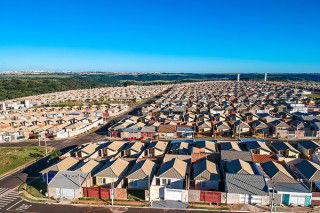Two top decisions announced in Washington, DC and Islamabad, respectively, would ease the Afghanistan government’s financial crunch and supply of cement to Kabul last week. Economic experts believe it would help Afghanistan, which direly needs foreign exchange reserves to import items and overcome the financial problem in the short term.
After months of waiting, US President Joe Biden on 11 February signed an executive order giving half of the US$7bn in frozen Afghan assets to Afghanistan while keeping the other half for the 11 September terror attacks victims. The US administration blocked the assets belonging to Afghanistan's central bank, known as Da Afghan Bank or DABin August last year.
The move aimed to prevent the country’s new Taliban rulers, who seized Kabul on 15 August 2021, from accessing the funds. President Biden said the order to release funds was “part of our ongoing world to address the humanitarian and economic crisis in Afghanistan”. The money would be used to benefit the Afghan people.
Export to Afghanistan
Meanwhile, Pakistan has allowed the export settlement of 14 items to Afghanistan in local currency. The export of poultry and products, meat, cement, pharmaceutical, textiles, fruits, vegetables, salt, rice and surgical instruments to the crisis-hit neighbouring country can be settled in Pakistani rupees, Commerce Advisor Abdul Razak Dawood announced on his official Twitter account on 11 February.
According to AHL Research, Pakistan's total cement exports shrunk by 24 per cent YoY during January 2022 to 0.53Mt due to a 95 per cent YoY decline in North-based exports to Afghanistan to 0.01Mt. Only a few years ago, Pakistan was the biggest supplier of cement to Afghanistan. In 2013 export stood at over 4.5Mt, which declined to 2Mt in 2020. The share began to drop significantly when Iranian cement found its way into Afghan markets. The situation is direr given the ongoing political turmoil and lack of foreign exchange in that country, which has caused considerable uncertainty in how soon that market may recover.
